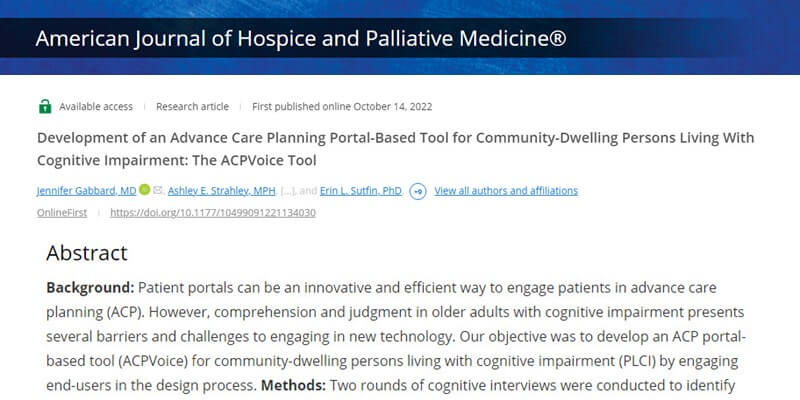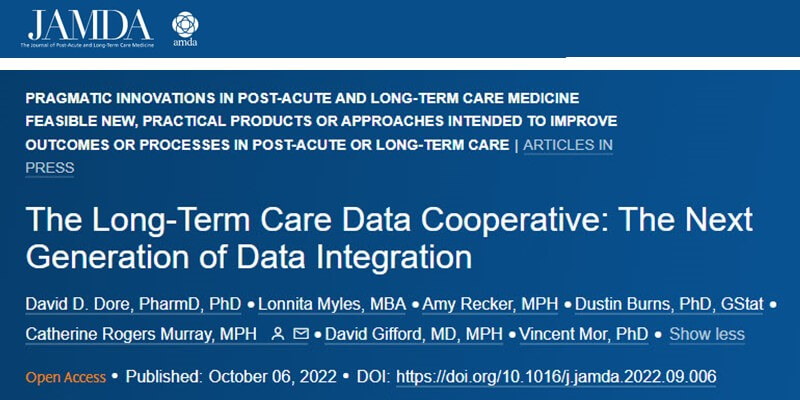The National Institutes of Health (NIH) recently released their 2022 Scientific Progress Report on Advancing Alzheimer’s Disease and Related Dementias and included the IMPACT Collaboratory as a highlight of real word applications of dementia research.
The NIH is working toward the ambitious goal of preventing and effectively treating Alzheimer’s disease and related dementias by 2025. The progress report features scientific advances and related efforts between April 2021 and early 2022 in areas including drug development, lifestyle interventions, biomarker research, and more. The report provides an overview of the meaningful progress researchers are making to address Alzheimer’s disease, which impacted more than 6 million Americans in 2022, and other dementias.
The IMPACT Collaboratory’s efforts to test interventions in real world settings was commended in the progress report, with special focus on the research conducted during COVID-19 to study the impact of the pandemic on nursing home residents. Members of the IMPACT Collaboratory received five supplement awards for intervention studies and three supplement awards to develop infrastructure systems to monitor the effects of COVID-19 vaccines.




